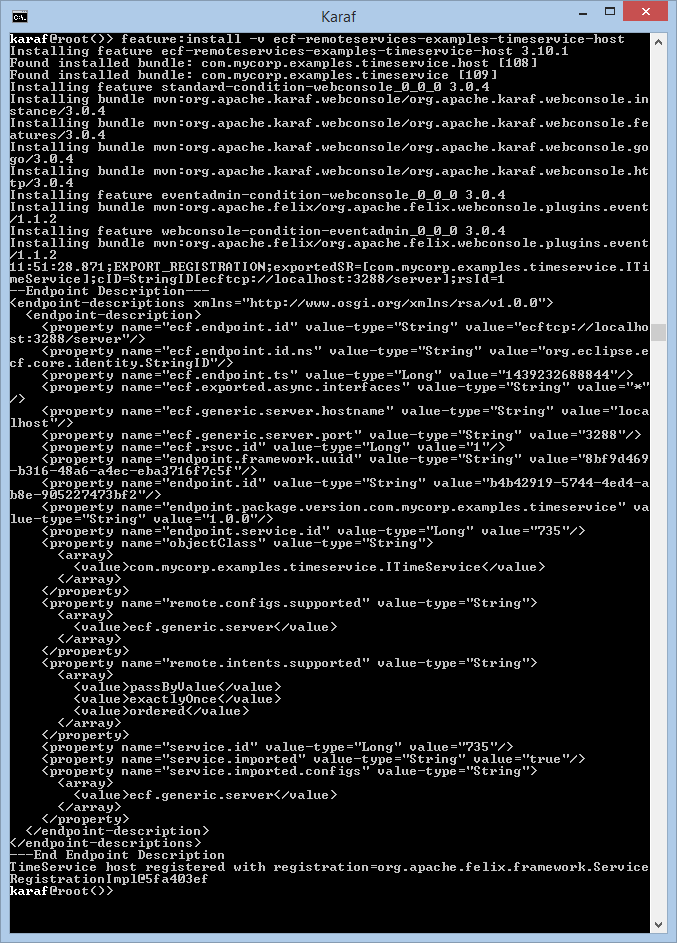Notice: this Wiki will be going read only early in 2024 and edits will no longer be possible. Please see: https://gitlab.eclipse.org/eclipsefdn/helpdesk/-/wikis/Wiki-shutdown-plan for the plan.
Difference between revisions of "EIG:Install TimeService Tutorial into Apache Karaf"
| Line 13: | Line 13: | ||
Then install the timeservice host example | Then install the timeservice host example | ||
| − | + | '''feature:install -v ecf-remoteservices-examples-timeservice-host''' | |
This will install the timeservice host, and start it producing the following output on console | This will install the timeservice host, and start it producing the following output on console | ||
Revision as of 17:21, 13 July 2015
Introduction
See the Building your first OSGi Remote Services Tutorial to understand how to design and build this example TimeService.
To run the remote time service host example on Apache Karaf with ECF Remote Services, first install Install the ECF Remote Service SDK into Apache Karaf. Then use the command shell to set the following system properties:
system:property verboseRemoteServiceAdmin true
system:property service.exported.configs ecf.generic.server
system:property ecf.generic.server.port 3288
system:property ecf.generic.server.hostname localhost
system:property ecf.exported.async.interfaces *
Then install the timeservice host example
feature:install -v ecf-remoteservices-examples-timeservice-host
This will install the timeservice host, and start it producing the following output on console
The output after the EXPORT_REGISTRATION indicates that the TimeService has been exported as a remote service and is ready for remote consumer discovery and usage.
For reference, this output is produced by the TimeService Examples Host activator class com.mycorp.examples.timeservice.host.Activator

